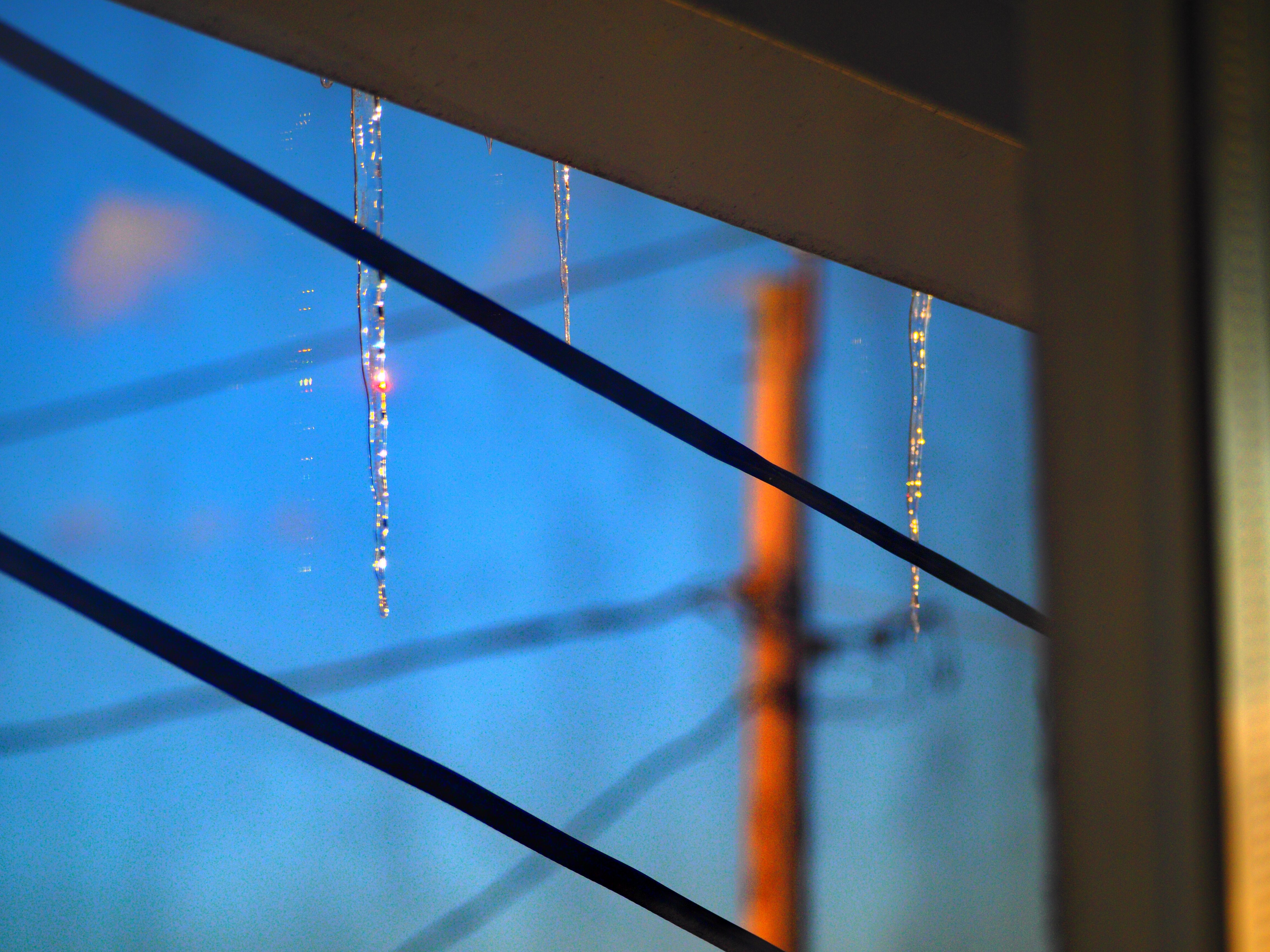-
Posts
44,789 -
Joined
Content Type
Profiles
Blogs
Forums
American Weather
Media Demo
Store
Gallery
Everything posted by LibertyBell
-
If you want whats healthy and better for the planet (and for us) it's to have way fewer people on it. You want no part of densely packed urban centers either, especially not the kinds I saw in Asia. For mental and physical health it's good to be closer to nature to smell flowers and trees during the day and to actually see the stars at night, I see this myself when I go to the Poconos vs living near the city. And I get a full night of deep sleep 8 hours there which I never get here. Sleep's importance for all types of health is extremely understated. AND DID YOU KNOW LIGHT POLLUTION INCREASES THE RISKS OF CANCER 30-50% (per a Harvard study.) It's good that we're greening the city up with urban farms, but at some point if we don't control our population ourselves, nature will do it for us and in some very unpleasant ways. Can't beat the math.
-
exactly, the whole idea of cities came from greedy oligarchs, pen the *unwashed* into tiny cramped kennels like animals (who also should not be housed that way.) Humans should live as close to nature as possible.
-
Records: Highs: EWR: 101 (1966) NYC: 101 (1966) LGA: 97 (2003) JFK: 98 (1963) it's truly amazing how hot 1966 was, this was just the first of THREE TRIPLE DIGIT HEATWAVES !!!
-
fake 1 am highs with daylight time lmao you know when the *day* should begin? at sunrise....
-
our severe season is typically in August and beyond with warmer SST, June heatwaves typically end with backdoor fronts, we saw this in 1988 and 1994 too.
-
In a word YES, and no we don't want tightly packed cities or McMansions (whatever that is). Tightly packed cities are not healthy and you know what else isn't healthy? 8 billion people on the planet. So not tightly packed cities or endless suburbs, what we actually need (and what will happen) is a population crash. I've been in some tightly packed cities in Asia and trust me you want no part of THAT
-
People need to stop creating concrete jungles, not only is it cooler outside of the city, it's also less polluted and much easier to sleep at night and breathe clean air with far lower rates of asthma.
-
JFK Airport: 76°, July 23, 2019 Don was this after JFK's back to back 99 degree highs when they set a new heat index record??
-
yes most of those earlier years heatwaves were drought driven, with less moisture in the air back then, the temperatures were cooler at night but when a hot airmass was around it was easier to get to triple digits. Summer 1966 being a case in point, the driest year on record in NYC and the only one in which 100 degrees was reached during three different heatwaves and a total of four times. 1953 was another very dry year and the only other one in which NYC had 4 100+ degree days. Have a look at this chart https://www.weather.gov/okx/100degreedays
-
https://www.nytimes.com/2025/06/24/nyregion/nyc-heat-wave.html This article from 2 days ago also mentions the August 1948 heatwave and compares it to what just happened but it's paywalled =\
-
this is an interesting article, it puts extreme heatwaves into a historical perspective, they talk about the lengthy 1980 and 1983 heatwaves which were 2 month heatwaves for a large part of the country, as well as the 1948 and 1966 historic heatwaves https://www.bostonreview.net/articles/heat-death/
-
Can't downplay the extreme devastation caused by this heatwave. AI Overview The summer of 1948 included a notable heat wave, particularly in late August. While not as severe as the 1936 heat wave, it caused significant heat-related deaths and disruptions, especially in urban areas. In New York City, the heat wave resulted in over 1,000 excess deaths, according to the Boston Review. Here's a more detailed look: Timing and Severity: The August 1948 heat wave was particularly intense, exceeding the severity of a heat wave eleven years earlier. Impact in New York City: The heat wave caused over 1,000 excess deaths in the city. Disruptions: The heat wave led to widespread power outages, strained infrastructure, and impacted daily life for many, according to The New York Times. Historical Context: While the 1936 heat wave remains the most severe in terms of widespread impact and duration, the 1948 heat wave serves as a reminder of the vulnerability of urban populations to extreme heat and the need for preparedness. Specific Examples: In one instance, a delegation had to arrange for city water after a school providing water access closed, and the Bronx Zoo reported significantly lower attendance than on a typical summer Sunday. Drownings and Heat Prostration: The heat wave was also marked by drownings and deaths due to heat prostration.
-
It did I think 1954 hit 100+ in NYC twice. Back then with the drier climate it was much easier to reach 100+ It was also easier to be colder. On the coast, extremes have a lot to do with how much moisture is in the air.
-
No urban heat island in 1948..... that was one of the most historic periods of heat on record with NYC peaking at 103 and three straight days of 100+ and JFK had back to back days of 100+ which has only happened a couple of times and that was the only time it happened after August 20. 1953 was much more extreme though and it has records for longest heatwave and peak September heat that still stand to this day.
-
November 1950 triple phaser 1953 was our most extreme summer on record never saw anything like it so it rubber banded back to extreme heat again in 1953 and 1955. Then back to cold again for the last few years of the 50s and the early 60s before the historic heat of 1966 and then cold again after that.
-
I hate those corn and soybean crops, all those subsidies have an extremely negative effect upon the environment and on our health.
-
1944 was much hotter than 1936. Likewise 1966 was the peak of the heat prior to 1993. There is a theory out there that the 5 summers between 1944 and 1955 that had extreme heatwaves were hot because of nuclear testing. 1944, 1948, 1949, 1953, 1955
-
it's fascinating how extreme heat was balanced out with extreme cold. the same must have happened after 1953 and 1955.
-
we need a 2002 type pattern to have this happen more often.
-
Yes a few days of this is pretty nice. 4 days of this and 3 days of the other is an interesting roller coaster lol.
-
a characteristic of summers like 1999 was that we would have weeks without any frontal passages (this also happened in 1993) and then the drought would be broken with a tropical deluge in September after the peak of the heat had already passed. I remember 1991 was also like this, but the tropical system that broke the drought was Hurricane Bob in late August. We did have a couple more 90 degree days after that in September though.
-
2002 wow and that was a really hot summer (hot and dry, which we need to get extremes like this.)
-
I think it has happened in August before, though I don't remember what year-- maybe 1993?
-
I'm confused I thought he loved cold weather lol. I like short heatwaves with breaks in between of weather like we have now.



